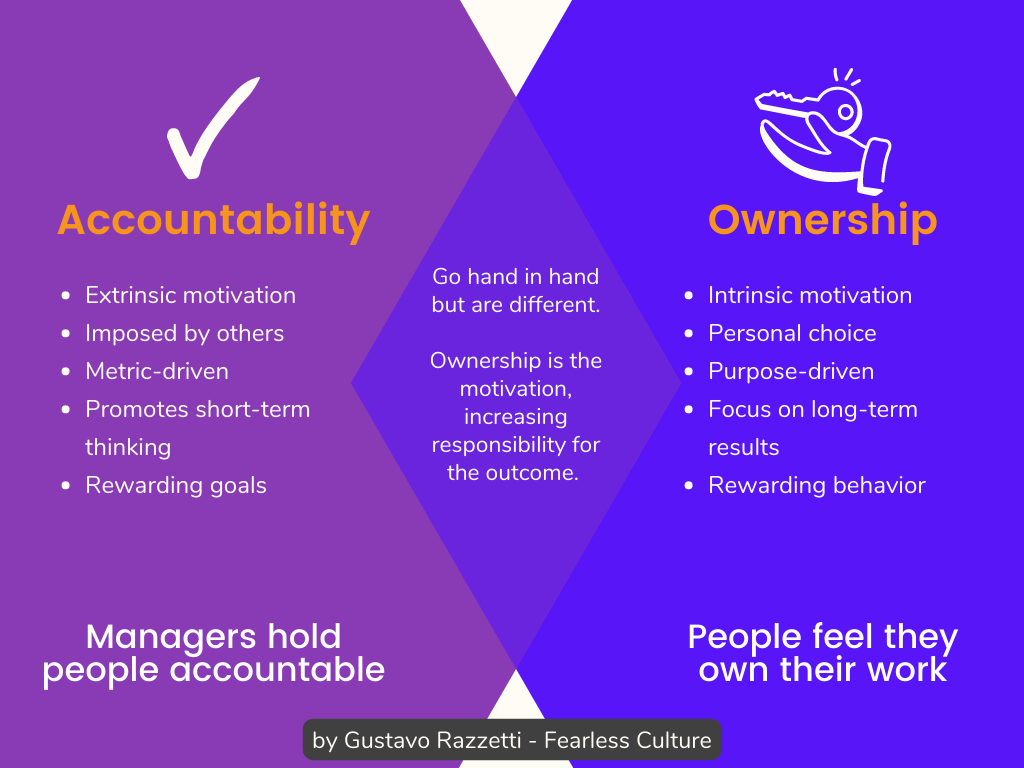Accountability Crisis – Solution: a Culture of Ownership
Accountability matters. But in a multi-year, multi-industry scientific study over 40,000 participants conducted by the Partners in Leadership (available on Scribd),
- 80% said accountability is consequential, after-the-fact, and only when things go wrong
- 70% of respondents said this was due to a lack of clarity around key results.
- 93% said they were unable to align their work to organizational goals.
- 84% cited the way leaders behave as the most important factor.
- Only 20% constantly seek and offer feedback.
- And just over 33% see due dates as “real commitments”.
Lean practitioners know that accountability is essential in design and construction. We call it “reliable promising”. We know that Lean tools like the Last Planner System® allow team members to hold themselves and each other accountable through visual management, daily huddles and weekly check-ins utilizing Percent of Promises Complete (PPC) and meeting Milestones.
But how do we expand that effectiveness of accountability throughout the project team and our organizations. The solution is to develop a Culture of Ownership.
In his well-researched and very readable Fearless Culture article, “How to Create an Ownership Mentality within your Team”, Gustavo Razzetti explains, “Leaders know that accountability is vital for success. However, they struggle to build a culture of ownership within their teams. 82% of respondents say they have limited to no ability to hold others accountable – they either try but fail or avoid it altogether.
Employees don’t have a good relationship with accountability either. Accountability systems fail to motivate them. Most people think that feedback occurs only when things go wrong. A study by Gallup found that only 14% of employees feel their performance is managed in a way that inspires them to take more responsibility.”

Building a Culture of Ownership is the key. Razzetti summarizes the two approaches in a simple chart shown here.
He offers seven essentials to creating that Culture of Ownership:
- Focus on the Why. We’re pretty good at communicating the “What” but even more important to feeling ownership is to understand the “Why”. Why does the Owner need this facility? Why are we designing it this way? “Creating a culture of constant improvement is more important than creating more business.” One leads to the other. Define what success would look like and let people decide how to achieve it.
- Pick up the trash. Yes, 5S. But also, at Netflix, it was a “metaphor for taking care of problems small and large…Picking up the trash is a habit built naturally to prevent the ‘that’s not my job’ excuse.” Ownership.
- Share authority, not just responsibility. If you want others to be accountable, they need to have the power to make decisions. “Distributing decision-making rights to those closest to the work provides speed and, usually, better outcomes. Those in more proximity to the ‘client’ or problem are better informed to make decisions,” Razzetti urges. It’s the Andon cord at Toyota, which Amazon has also adopted. “Delegating authority increases a sense of ownership – people take the outcome more seriously. If you want people to own the consequences, let them own their decisions.”
- Reward behavior, not just metrics. Remember when Wells Fargo offered employee bonuses for opening new accounts? They opened accounts no one asked for. Our team mates should own the behaviors that will move the metric – they should do what’s right, not just achieve a short-term target.
- Focus on the end product, not just the project. Now I’m a big believer in “Project First Thinking” (https://www.youtube.com/watch?v=632n0_PyYKA&t=8s). But the whole point of the project is the end product – a high quality facility or piece of infrastructure. In my mind they’re the same thing. But some people separate the two. They focus on their own success in the project, or on being a great team, and they miss the North Star, the product – the Value – for the owner. Sort of like the surgeon that declares “the operation was a success, but the patient died”.
- Stop rewarding unfairness. “When organizations give underperformers a pass, they reward a lack of accountability. Even worse, they usually punish high-performers by giving them more work to offset low performers’ inefficiency. Fairness is crucial to promoting a sense of ownership within your team.”
- Allow people to define standards. “When goals and metrics are defined by managers, they feel foreign. It’s hard for people to own something that “comes from the top” without being consulted. Inviting people to help define the standards not only creates ownership: it also removes the need to get buy-in,” Razzetti explains. Scary? Maybe. And it’s not a blank sheet paper. It’s a collaborative discussion. Trust builds. Razzetti sums it up this way: “When people help set the bar, they feel more motivated to reach and exceed their goals.”
So if your team or organization is experiencing an accountability crisis, flip the paradigm. Take those 7 steps to create an ownership mentality. And reach out if you need some help getting started.
-Dan Fauchier
